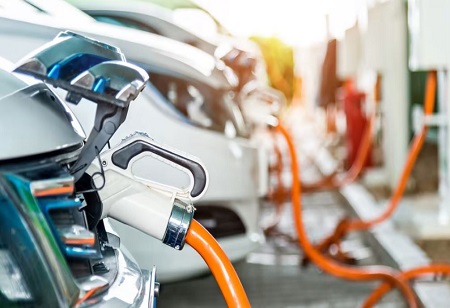
How Automotive Industry is Undergoing a Green Energy Transition
There is absolutely no doubt that the climate change has shook the foundations of our lives in recent few years. Floods, coral reef destruction, melting glaciers, and global warming have already caused havoc. The planet is gradually deteriorating due to ongoing environmental degradation. With unprecedented changes and recurring disasters, if this continuous an impending environmental crisis is not far away.
Today in response to rising demand, automotive industries are amplifying up their productions to meet the need of the customers. They are unaware of the massive amount of toxic gases released into the atmosphere with each production cycle. Over the last decade, our planet has become increasingly clogged with cars and other vehicles powered by internal combustion engines. These modes of transportation run on fuels like gasoline and diesel, which emit carbon dioxide and other harmful chemicals into the atmosphere. For years, this was an unnoticed threat, but it is now the leading cause of air pollution.
The Reason behind the increase in demand for EVs
Elon Musk once said, “It is 'foolish' to buy a gasoline car because its value will drop while the world turns to electric vehicles.”
In today's modern era, driven by technological advancements and innovation, it is crucial to consider environmental impacts and foster sustainable living. The ever-increasing number of automobiles on the road is arguably one of the most significant contributors to the growing threat of pollution. The global pandemic, which saw fewer vehicles on the road due to stringent protocols, was just one example of the noticeable impact automobiles had on the environment.
Today the automotive industry has been a contributor to different types of pollution - both at the consumer level and the manufacturing source. In the life cycle of a vehicle, its usage accounts for around 90 percent of greenhouse gas emissions, with manufacture accounting for the remaining 10 percent. This was the main reason why they had to move towards a sustainable energy chain with investing more and more capital on the EV’s and Synthetic Fuels.
It is no surprise that electric vehicles and electrification technology are gaining ground today. If we see the stats today, battery electric and plug-in hybrid electric car sales crossed the two million mark for the first time in 2019. And although COVID has impacted overall car sales, a pattern of steady growth over the last two years in the EV space is likely to be maintained through the coming decade. Yet at the same time, the automotive industry is racing toward a new world, driven by sustainability and changing consumer behavior, encompassing electric vehicles, connected cars, mobility fleet sharing, onboard sensors, new business models, and always-on connectedness.
Can we expect transition in future on fossil fuels?
There is no doubt EV’s have become a priority for the automotive industry now, especially in Asia wherein automotive manufacturers play a major role in attempting to reduce pollution in major cities. While the use of EVs does lessen greenhouse gas emissions, the carbon footprint created by the EV manufacturing process is a concern as it leads to more carbon emissions than the production of a regular petrol vehicle.
Within the same time, the automotive industry is racing toward a new world, driven by sustainability and changing consumer behavior, encompassing electric vehicles, connected cars, mobility fleet sharing, onboard sensors, new business models, and always-on connectedness.
Synthetic fuels are Acceptable, but they are more Expensive
The fate of traditional fossil fuels appears to be all but decided. The negative effects of tens of millions of drivers burning petrol on a daily basis have serious consequences for the environment. As a result, the government of every continent is looking to regulate the automotive industry in order to prevent further damage to the Earth's climate. It's widely assumed that electric cars are the wave of the future, and as a result, many car manufacturers are looking to electrify their lineups to keep up with what appears to be the wave of the future, but e-fuels could change that.
One of the main reasons why synthetic fuel looks so appealing to car enthusiasts is that it will allow them to keep the combustion engines they love today. Unlike other fuel sources proposed as electric alternatives, e-fuels can power a traditional combustion engine without modification. That is, mass production of e-fuels has the potential to keep millions of cars on the road. Some industries are investing heavily in the research and development of this seemingly magical alternative to both electric vehicles and combustion engines.
Need to Balance the Bottom line with the Green line
No doubt the automotive industries are moving in the right direction but they need to utilize green energy into their system to reduce the carbon emissions. Automotive companies may face many obstacles on the road ahead as they try to balance competing pressures in their industry, but they are up to the challenge. Auto executives understand that sustainability is critical to the future of the industry, and as the survey shows, manufacturers are already leading the way when it comes to adopting more sustainable practices. While some business leaders are more dedicated than others, all organizations in the automotive industry must work together to make the entire supply chain greener for a more sustainable industry, and a more sustainable planet.
We use cookies to ensure you get the best experience on our website. Read more...